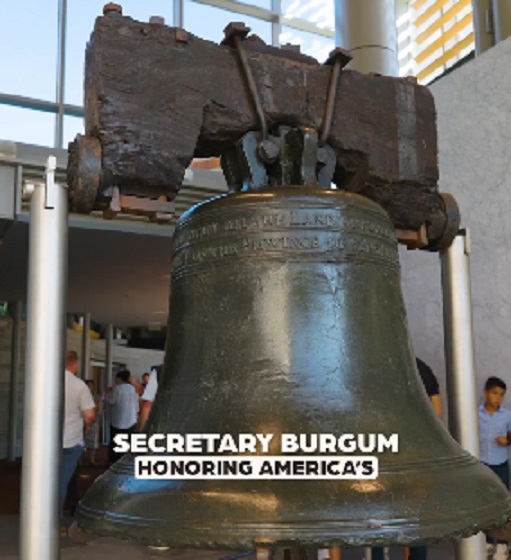Alberta
The Gift You Don’t Even Know You Didn’t Need…

A Jesse Roads & Friends Merry Christmas
– the gift you don’t even know you didn’t need…
“Probably not the worst Christmas special…“
– Jesse Roads
Well friends I am beyond excited to share with you the gift you don’t even know you didn’t need… I had the idea to do some sort of a Christmas special for quite some time now. I felt like it was more important than ever this year. With such a lack of joy and camaraderie among the masses (especially within the arts community due to cancellation after cancellation wreaking havoc on all of our mental health) it was clear that I could, at the very least hit my Rolodex and reach out to some of my buds.

Unlike many of my peers and fellow performers, I have been blessed with a production team and the ability to create some amazing content throughout this crazy wild global pandemic, from songs to streams and the start of a movie, so much has come from this. I feel a sense of responsibility to not let that go to waste and to do everything I can to grow as an artist while contributing to society’s wellbeing somehow. Well it’s Christmas! Why not get at it and spread a little festive cheer for the season. I love Christmas, always have.
Turns out some of my buds love it too! I am so very thankful to the performers that were able to jump on board with this project. All of which did so out of the kindness of their own hearts. I even managed to somehow get Clayton Bellamy of the Road Hammers to say yes! From the likes of Randi Boulton to Curtis Labelle and Devin Cooper the special is stacked!
The show is free of charge to watch and enjoy. All we ask is that you spread a little kindness wherever and however you can. Thats it. Be kind with purpose, on purpose. Click below for the show, don’t forget to like and subscribe!
Jack Semple BB King Tribute concert showcases one of Canada’s finest guitarists
Alberta
Carney forces Alberta to pay a steep price for the West Coast Pipeline MOU

From the Fraser Institute
The stiffer carbon tax will make Alberta’s oil sector more expensive and thus less competitive at a time when many analysts expect a surge in oil production. The costs of mandated carbon capture will similarly increase costs in the oilsands and make the province less cost competitive.
As we enter the final days of 2025, a “deal” has been struck between Carney government and the Alberta government over the province’s ability to produce and interprovincially transport its massive oil reserves (the world’s 4th-largest). The agreement is a step forward and likely a net positive for Alberta and its citizens. However, it’s not a second- or even third-best option, but rather a fourth-best option.
The agreement is deeply rooted in the development of a particular technology—the Pathways carbon capture, utilization and storage (CCUS) project, in exchange for relief from the counterproductive regulations and rules put in place by the Trudeau government. That relief, however, is attached to a requirement that Alberta commit to significant spending and support for Ottawa’s activist industrial policies. Also, on the critical issue of a new pipeline from Alberta to British Columbia’s coast, there are commitments but nothing approaching a guarantee.
Specifically, the agreement—or Memorandum of Understanding (MOU)—between the two parties gives Alberta exemptions from certain federal environmental laws and offers the prospect of a potential pathway to a new oil pipeline to the B.C. coast. The federal cap on greenhouse gas (GHG) emissions from the oil and gas sector will not be instituted; Alberta will be exempt from the federal “Clean Electricity Regulations”; a path to a million-barrel-per day pipeline to the BC coast for export to Asia will be facilitated and established as a priority of both governments, and the B.C. tanker ban may be adjusted to allow for limited oil transportation. Alberta’s energy sector will also likely gain some relief from the “greenwashing” speech controls emplaced by the Trudeau government.
In exchange, Alberta has agreed to implement a stricter (higher) industrial carbon-pricing regime; contribute to new infrastructure for electricity transmission to both B.C. and Saskatchewan; support through tax measures the building of a massive “sovereign” data centre; significantly increase collaboration and profit-sharing with Alberta’s Indigenous peoples; and support the massive multibillion-dollar Pathways project. Underpinning the entire MOU is an explicit agreement by Alberta with the federal government’s “net-zero 2050” GHG emissions agenda.
The MOU is probably good for Alberta and Canada’s oil industry. However, Alberta’s oil sector will be required to go to significantly greater—and much more expensive—lengths than it has in the past to meet the MOU’s conditions so Ottawa supports a west coast pipeline.
The stiffer carbon tax will make Alberta’s oil sector more expensive and thus less competitive at a time when many analysts expect a surge in oil production. The costs of mandated carbon capture will similarly increase costs in the oilsands and make the province less cost competitive. There’s additional complexity with respect to carbon capture since it’s very feasibility at the scale and time-frame stipulated in the MOU is questionable, as the historical experience with carbon capture, utilization and storage for storing GHG gases sustainably has not been promising.
These additional costs and requirements are why the agreement is the not the best possible solution. The ideal would have been for the federal government to genuinely review existing laws and regulations on a cost-benefit basis to help achieve its goal to become an “energy superpower.” If that had been done, the government would have eliminated a host of Trudeau-era regulations and laws, or at least massively overhauled them.
Instead, the Carney government, and now with the Alberta government, has chosen workarounds and special exemptions to the laws and regulations that still apply to everyone else.
Again, it’s very likely the MOU will benefit Alberta and the rest of the country economically. It’s no panacea, however, and will leave Alberta’s oil sector (and Alberta energy consumers) on the hook to pay more for the right to move its export products across Canada to reach other non-U.S. markets. It also forces Alberta to align itself with Ottawa’s activist industrial policy—picking winning and losing technologies in the oil-production marketplace, and cementing them in place for decades. A very mixed bag indeed.
Alberta
West Coast Pipeline MOU: A good first step, but project dead on arrival without Eby’s assent

The memorandum of understanding just signed by Prime Minister Mark Carney and Premier Danielle Smith shows that Ottawa is open to new pipelines, but these are unlikely to come to fruition without British Columbia Premier David Eby’s sign-off, warns the MEI.
“This marks a clear change to Ottawa’s long-standing hostility to pipelines, and is a significant step for Canadian energy,” says Gabriel Giguère, senior policy analyst at the MEI. “However, Premier Eby seems adamant that he’ll reject any such project, so unless he decides not to use his veto, a new pipeline will remain a pipedream.”
The memorandum of understanding paves the way for new pipeline projects to the West Coast of British Columbia. The agreement lays out the conditions under which such a pipeline could be deemed of national interest and thereby, under Bill C-5, circumvent the traditional federal assessment process.
Adjustments to the tanker ban will also be made in the event of such a project, but solely for the area around the pipeline.
The federal government has also agreed to replace the oil and gas emissions cap with a higher provincial industrial carbon tax, effective next spring.
Along with Premier Eby, several First Nations groups have repeatedly said they would reject any pipeline crossing through to the province’s coast.
Mr. Giguère points out that a broader issue remains unaddressed: investors continue to view Canada as a high-risk environment due to federal policies such as the Impact Assessment Act.
“Even if the regulatory conditions improve for one project, what is Ottawa doing about the long-term uncertainty that is plaguing future projects in most sectors?” asks the researcher. “This does not address the underlying reason Carney has to fast-track projects piecemeal in the first place.”
Last July, the MEI released a publication on how impact assessments should be fair, transparent, and swift for all projects, not just the few favoured by Ottawa under Bill C-5.
As of July, 20 projects were undergoing impact assessment review, with 12 in the second phase, five in the first phase, and three being assessed under BC’s substitution agreement. Not a single project is in the final stages of assessment.
In an Economic Note published this morning, the MEI highlights the importance of the North American energy market for Canada, with over $200 billion moving between Canada and the United States every year.
Total contributions to government coffers from the industry are substantial, with tens of billions of dollars collected in 2024-2025, including close to C$22 billion by Alberta alone.
“While it’s refreshing to see Ottawa and Alberta work collaboratively in supporting Canada’s energy sector, we need to be thinking long-term,” says Giguère. “Whether by political obstruction or regulatory drag, Canadians know that blocking investment in the oilpatch blocks investment in our shared prosperity.”
* * *
The MEI is an independent public policy think tank with offices in Montreal, Ottawa, and Calgary. Through its publications, media appearances, and advisory services to policymakers, the MEI stimulates public policy debate and reforms based on sound economics and entrepreneurship.
-

 Business1 day ago
Business1 day agoBlacked-Out Democracy: The Stellantis Deal Ottawa Won’t Show Its Own MPs
-

 Alberta2 days ago
Alberta2 days agoPremier Danielle Smith says attacks on Alberta’s pro-family laws ‘show we’ve succeeded in a lot of ways’
-

 Agriculture1 day ago
Agriculture1 day agoHealth Canada pauses plan to sell unlabeled cloned meat
-

 Alberta2 days ago
Alberta2 days agoNew pipeline from Alberta would benefit all Canadians—despite claims from B.C. premier
-

 Artificial Intelligence2 days ago
Artificial Intelligence2 days agoGoogle denies scanning users’ email and attachments with its AI software
-

 COVID-192 days ago
COVID-192 days agoCrown seeks to punish peaceful protestor Chris Barber by confiscating his family work truck “Big Red”
-

 Crime1 day ago
Crime1 day agoB.C.’s First Money-Laundering Sentence in a Decade Exposes Gaps in Global Hub for Chinese Drug Cash
-

 International1 day ago
International1 day agoAmerica first at the national parks: Trump hits Canadians and other foreign visitors with $100 fee








